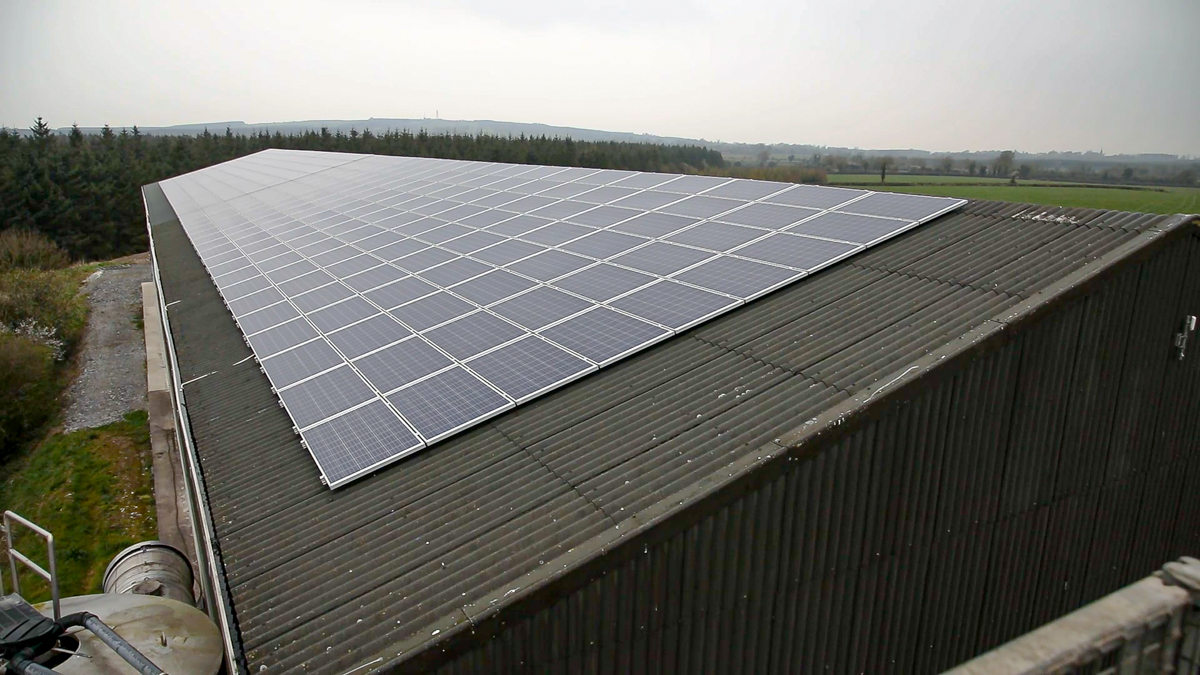The emissions reduction target of 25% by 2030 for the agriculture sector has prompted calls for enhanced support for on-farm renewables.
Although any emissions offset through farm-scale renewables will not count towards agriculture’s emissions reduction (this will be counted as part of the energy reduction sector), on-farm energy production has been cited as a way to “get money into farmers’ pockets” in order to assist them in meeting the emissions target.
The Micro-Renewable Energy Federation (MREF) said this morning (Friday, July 29) that the target for agriculture is challenging, but can be achieved if the government “moves immediately” to assist the sector “in a meaningful way”.
The MREF chairperson, Pat Smith, argued that strong grant and tariff support for on-farm micro-generation, and for anaerobic digestion (AD) plants to generate biomethane and biofertiliser, were two “key components” for helping the sector transition.
According to Smith, a minimum of 40% grant aid for solar PV installations and 60% grant aid for battery storage on farms, with easily accessible grid connections, were required for micro-generation.
“There is enough roof space on Irish farms to provide 3000MW of renewable energy and this needs to be harnessed as a priority. Farmers will respond positively if these supports are put in place,” he argued.
On agriculture-based AD, the MREF chairperson called for “an end to talking about it”.
“There is huge opportunity to empower the farming community to generate biomethane and biofertiliser, which will have major positive impacts for the country,” Smith argued.
He concluded: “What’s needed is an end to the talking about it and the immediate introduction of a significant capital grant support structure to ensure that these projects can stack up financially.”
The importance of solar PV was also highlighted by the Irish Solar Energy Association (ISEA) in its response to the emissions targets in the various sectors.
Commenting on a commitment to increase the targeted capacity of solar PV by 2030 to 5.5GW, the association said: “This announcement reinforces just how important the generation of solar PV energy is going to be in helping us decarbonise our electricity supply.”
The previous target for solar PV capacity by 2030 was 1.5-2.5GW.
Conall Bolger, the chairperson of the ISEA, said: “[The announcement] recognises that solar at scale, working in tandem with wind and storage, will be critical in moving Ireland towards its zero carbon future.
“Recent discussions on emissions ceilings have highlighted the importance of the right targets, and targets become meaningful with concerted action.
“These targets are a welcome step in the right direction but require action on making access to the grid easier, cheaper and more certain. There is no credible pathway to mitigating climate change that does not involve a profound scaling up of renewable electricity,” Bolger concluded.
